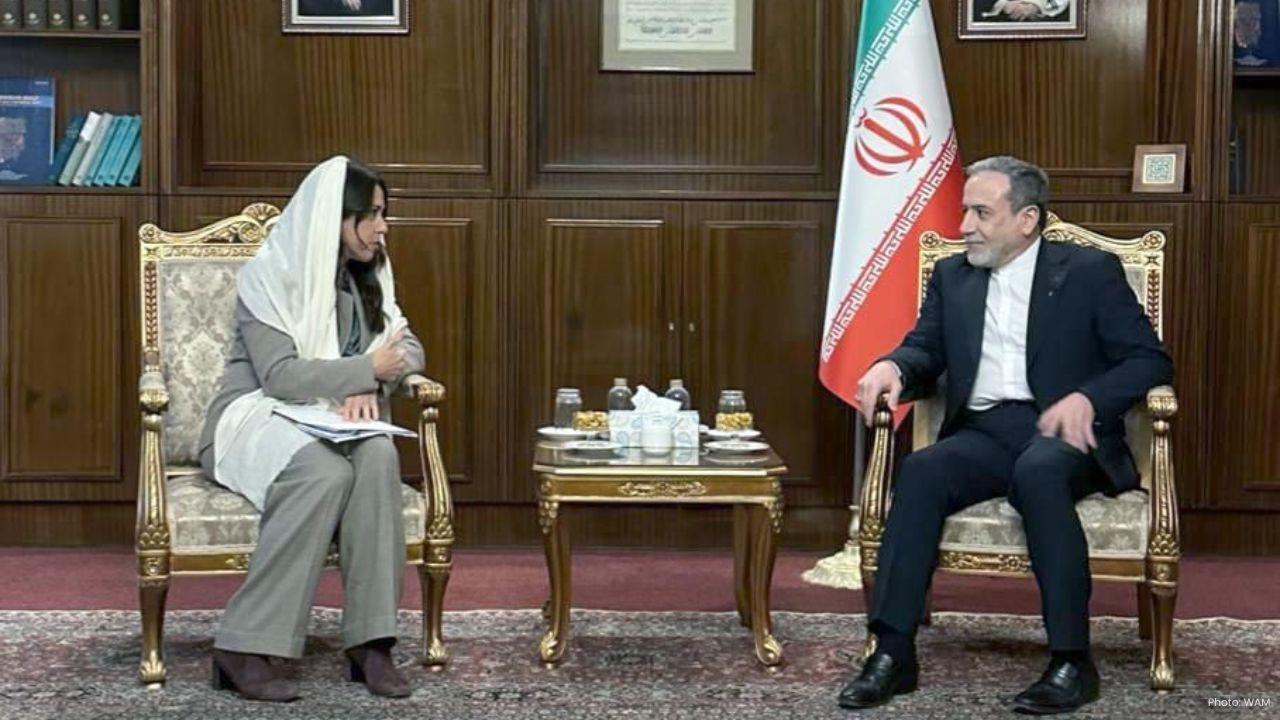
Post by : Mariam Al-Faris
Photo: Reuters
Saudi Arabia is expected to send its highest amount of oil to China in two years this August. According to a report from Reuters, based on data from oil refiners and trade sources, China will receive about 1.56 million barrels per day (bpd) of Saudi crude oil next month.
This is a big step up from previous months and shows how important the Chinese market is for Saudi Arabia. Despite recent price hikes, Chinese buyers are still going ahead with large purchases, which reflects continued trust and demand for Saudi oil.
China Will Receive 51 Million Barrels in August
The data from refiners shows that China is set to import a total of 51 million barrels of oil from Saudi Arabia in August. This is the largest amount in the past two years, even though Saudi Arabia increased the price of its oil for Asian buyers recently.
In July, Saudi exports to China were about 47 million barrels, and in June, they were slightly higher at 48 million barrels. So the August figure marks a clear jump in volume.
This level of exports is just below the 2024 average of 1.57 million bpd and still behind the 2023 average of 1.72 million bpd, but it shows strong recovery and growing confidence.
Saudi Arabia Raised Prices for Asian Buyers
Even though Saudi Arabia is sending more oil to China, it also raised prices for the region in August.
Buyers in Asia (including China) will now pay $0.90 to $1.30 more per barrel.
Buyers in North America, in contrast, will face a smaller increase, between $0.20 and $0.40 per barrel.
This price hike could have made the oil less attractive, but many Asian refiners prefer stable, long-term contracts over the risks of buying on the open market. Saudi oil is known for its quality and reliability, which makes it a safe choice.
Middle Eastern Oil Gained Popularity After Regional Tensions
Demand for oil from the Middle East rose after conflict between Israel and Iran in June 2025. The situation pushed spot market oil prices higher, making term contracts from Saudi Arabia and other Middle Eastern countries more attractive.
This means that even though Saudi Arabia increased its prices, its contracts still offer better value and reliability compared to the unpredictable spot market. As a result, many Asian countries, especially China, increased their purchases.
Saudi Arabia Supplies Big Chinese State Companies
Saudi Arabia mostly supplies oil to large state-owned Chinese companies like:
CNPC (China National Petroleum Corporation)
Sinopec (China Petroleum & Chemical Corporation)
These companies have long-term agreements and prefer dealing with trusted suppliers. That is why Saudi Arabia remains a top source, even if it doesn’t offer the cheapest price.
On the other hand, Russia and Iran are the main suppliers to independent refiners in China, often called “teapots.” These smaller companies are more flexible and usually look for lower-priced oil with easier conditions.
Russia and Iran Offer Discounts to Gain Market Share
Russia and Iran have become strong competitors for Saudi Arabia in the Chinese oil market. They sell oil at lower prices and on more flexible terms, which makes them attractive to smaller Chinese refiners.
These countries are both members of OPEC+, just like Saudi Arabia. However, they are trying to increase their own oil sales, especially as Western sanctions have pushed them to rely more on markets like China.
Saudi Arabia, however, still holds a strong position by focusing on reliable supply, consistent quality, and long-term contracts with major state-owned buyers.
OPEC Warns of Slowing Oil Demand in China
Even though oil exports to China are strong for now, the group OPEC (Organization of the Petroleum Exporting Countries) has shared concerns about slowing global oil demand, especially in China.
Reasons for possible weaker demand include:
Slower economic growth in China
Reduced industrial activity
Uncertainty in global energy markets
If these trends continue, countries like Saudi Arabia, Russia, and Iran may face tougher competition to sell their oil, possibly leading to price cuts or reduced profits.
Oil Market Response Has Been Positive
Despite these concerns, the news that Saudi exports to China will increase has had a positive impact on the oil market. Saudi oil stocks rose more than 5% on the Tadawul stock exchange, showing that investors see this as a good sign.
The strong demand from China in August could help Saudi Arabia increase its oil revenues, support its Vision 2030 goals, and strengthen its position in global energy markets.
What Makes Saudi Oil Attractive to China?
Even with rising prices, Saudi oil remains a top choice for several reasons:
Reliability – Saudi Arabia has a strong history of delivering oil on time and in the agreed quantity.
Quality – The type of oil Saudi Arabia produces is well-suited to Chinese refineries.
Government Relations – Saudi Arabia has strong diplomatic and trade ties with China.
Long-Term Deals – State refiners prefer stable supply agreements over buying oil in the spot market, which can be volatile.
These factors make Saudi Arabia a safe and trusted partner for China’s oil needs.
The Future of Oil Exports in Asia
As the world slowly moves toward cleaner energy, Asian countries like China, India, and South Korea still rely heavily on oil for transport, manufacturing, and power. This means oil exports will remain important for Saudi Arabia in the near future.
However, to stay competitive, Saudi Arabia will need to:
Monitor oil prices carefully
Maintain strong ties with buyers
Balance its output with OPEC+ agreements
Compete with discounted oil from Russia and Iran
At the same time, Saudi Arabia is investing in renewable energy and economic diversification through its Vision 2030 strategy, which includes reducing its long-term dependence on oil.
Saudi Arabia is set to export 1.56 million barrels per day of crude oil to China in August 2025, reaching the highest level in two years. This shows strong demand, even though prices have gone up.
While Russia and Iran are offering cheaper alternatives, Saudi Arabia’s strong partnerships and reliable supply continue to make it a preferred source for China’s major refiners.
With global oil demand facing uncertainty, this surge in exports is a positive sign for Saudi Arabia, but challenges remain in a changing global energy market.










Mattel Revives Masters of the Universe Toys Ahead of Film Launch
Mattel reintroduces Masters of the Universe action figures in sync with a new movie, reigniting pass

China Carries Out Executions of 11 Ming Family Members for Myanmar Scams
China has executed 11 Ming family members for orchestrating extensive scams and illegal gambling ope

US Issues Urgent Warning to Iran Amid Military Buildup in Gulf Region
As US military presence increases, Trump urges Iran to negotiate on nuclear program and warns of str

Copper Prices Reach Historical Heights Amid Global Metal Surge
Copper prices peak as geopolitical issues and a weak dollar fuel demand, initiating a sweeping rise

New Zealand Claims Victory Over India by 50 Runs in T20 Match
New Zealand defeated India by 50 runs in the fourth T20I, keeping their hopes alive in the series de

BTS Tour Demand Surges: Mexico Requests More Concerts
Mexico's President seeks more BTS concerts due to overwhelming ticket demand as fans rush to secure